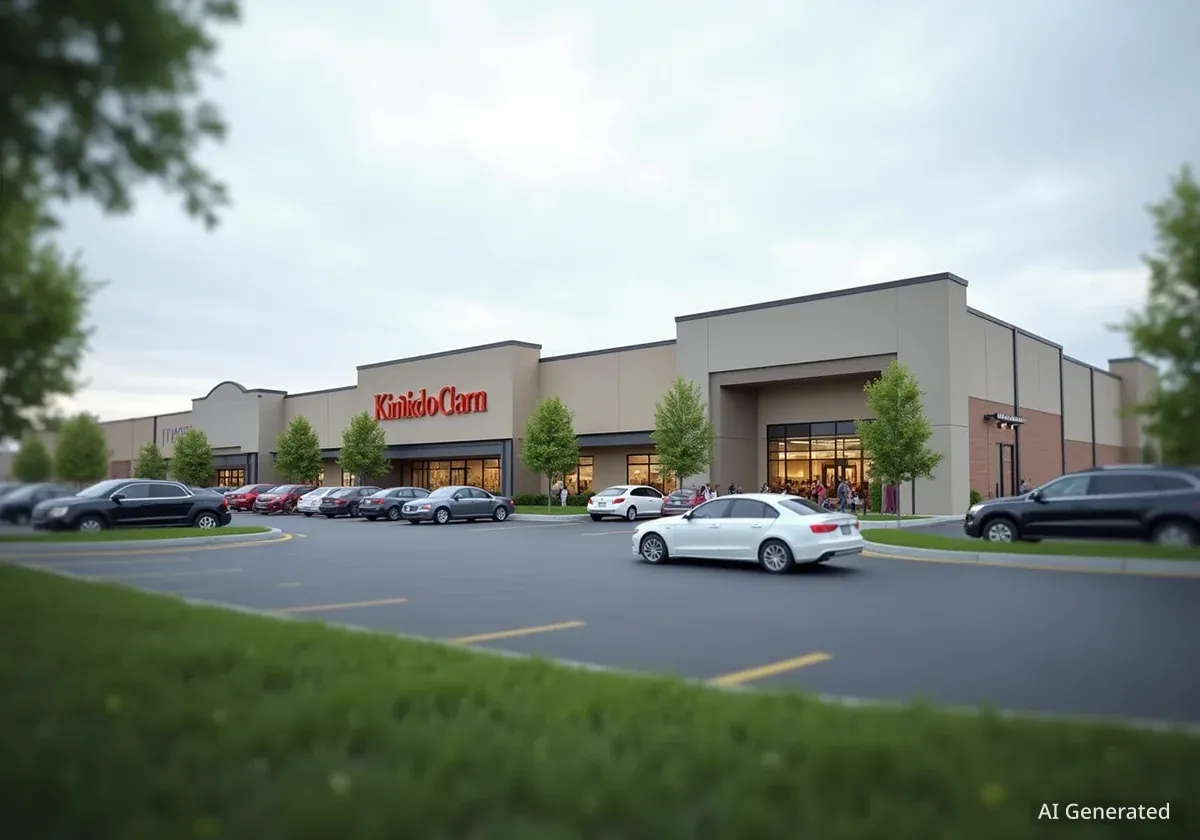Tractor Supply, a retailer traditionally known for its rural and exurban locations, is implementing a significant expansion strategy that involves opening larger stores in high-income suburban areas. The company plans to open approximately 500 new locations over the next five years, many of which will occupy repurposed big-box retail spaces left vacant by other companies.
Key Takeaways
- Tractor Supply plans an aggressive expansion with 500 new stores slated for the next five years.
- The company is shifting its focus from rural areas to include densely populated, high-income suburbs.
- New stores are often repurposed vacant big-box locations, some more than double the size of a typical Tractor Supply store.
- This strategy is fueled by the availability of real estate from bankrupt retailers like Big Lots, Joann Fabrics, and At Home.
- Merchandise is being localized through the 'Project Fusion' initiative to cater to suburban customer needs, emphasizing pets, apparel, and seasonal goods.
A New Blueprint for Growth
Tractor Supply is undergoing a notable transformation in its approach to physical retail. The company's traditional store model consists of a 15,000 to 20,000-square-foot building, often freestanding with a large outdoor sales area. This format has served its core customer base in rural communities well for decades.
However, the company's latest expansion plans reveal a pivot toward much larger and more urbanized settings. By acquiring and repurposing vacant retail properties, Tractor Supply is moving into spaces that are sometimes more than twice the size of its standard prototype. This includes a new 50,000-square-foot location in West Babylon, New York, which occupies a former supermarket.
By the Numbers
- 500: Approximate number of new stores planned over the next 5 years.
- 90: New store openings planned for 2025 alone.
- 47,000 sq ft: Size of a new store in Ventura, CA, a former Toys R Us.
- 18: Leases acquired from the bankrupt discount retailer Big Lots in May 2025.
From Farmland to Main Street
The strategic shift is not just about size, but also location. Tractor Supply is now establishing a presence in densely populated, affluent suburbs—territory it has historically avoided. This move has surprised some local communities, but it appears to be a calculated decision based on market data.
A recent opening in Rochester Hills, Michigan, an affluent suburb of Detroit, illustrates this new direction. The store, a former Petsmart, was met with initial skepticism by some residents. However, the company found a ready base of loyal customers who were previously traveling long distances to shop at its more remote locations.
Other examples of this suburban push include a new store in a former Toys R Us in Ventura, California, a suburb of Los Angeles, and another on Long Island, New York. These locations represent a significant departure from the retailer's rural roots and signal a broader ambition to capture a new demographic.
The Rise of Second-Generation Real Estate
Tractor Supply's strategy leverages a growing trend in commercial real estate: the adaptive reuse of vacant stores. As retailers like Big Lots, Joann Fabrics, and At Home have filed for bankruptcy, they leave behind large, well-located properties. For an expanding company like Tractor Supply, repurposing these 'second-generation' spaces is often faster and more cost-effective than new construction, allowing for rapid market entry.
Adapting the Aisles for a New Customer
Entering new markets requires more than just securing a lease. Tractor Supply is carefully tailoring its product mix to align with the lifestyles of its new suburban customers through an initiative called Project Fusion. This program localizes store layouts and merchandise allocations based on demographic data.
What Suburban Shoppers Will Find
While rural stores will continue to prioritize farm and ranch supplies, the new suburban locations feature a different emphasis. Shoppers in places like Rochester Hills will find:
- Expanded Apparel Sections: Including large 'store-in-store' displays for brands like Carhartt, which have gained mainstream popularity.
- Pet-Centric Offerings: A greater focus on food and supplies for dogs and cats, rather than horses and livestock.
- Enhanced Pet Services: On-site facilities for pet washing, professional grooming, and even veterinary care.
- Seasonal and Lifestyle Goods: More floor space dedicated to items like seasonal decorations and outdoor living products.
This localized approach ensures that each new store is relevant to its immediate community, whether it's serving a rancher in a rural town or a pet owner in a bustling suburb.
An Opportunistic Real Estate Play
At its core, Tractor Supply's expansion is driven by real estate availability. The recent wave of retail bankruptcies has created a unique opportunity. The company's acquisition of 18 leases from Big Lots in May 2025 is a primary driver for its 90 planned openings this year.
These acquired sites include locations in less-rural areas such as Albuquerque, New Mexico, and Wilmington, North Carolina. One notable site is a 40,000-square-foot building in Lakeland, Florida, which is double the size of a standard Tractor Supply store.
By repurposing existing buildings, Tractor Supply can enter prime retail locations more quickly and at a lower cost than building from the ground up. This agility is a key advantage in a competitive retail landscape.
As more big-box real estate becomes available from struggling retailers, it is expected that Tractor Supply will continue its opportunistic pursuit of these properties. This strategy allows the company to grow its footprint aggressively, even if it leads to larger stores in unconventional locations. The move signals a bold vision for the future, one where the familiar rural lifestyle brand becomes a common sight in suburban shopping centers across the country.





